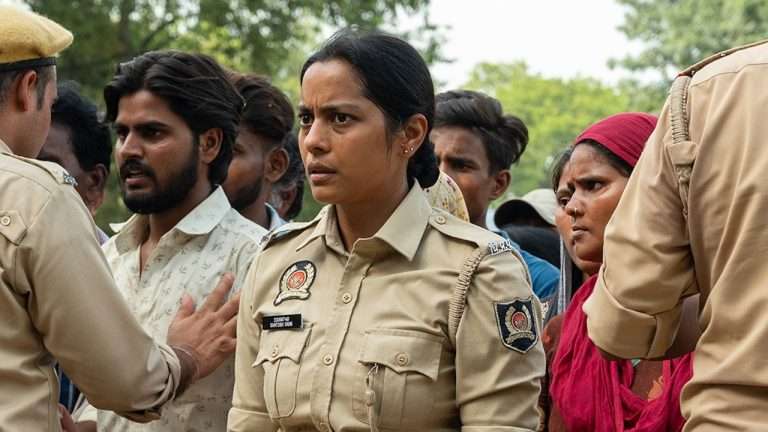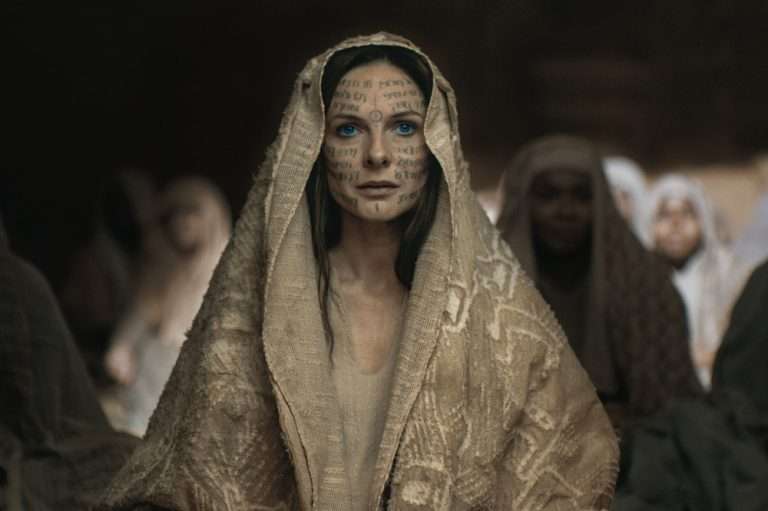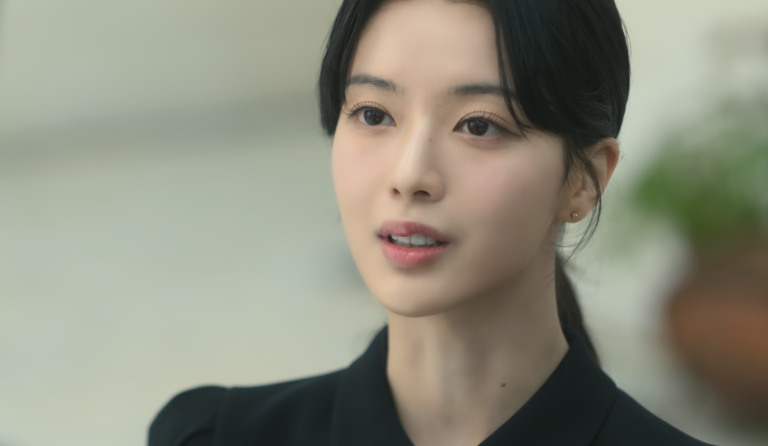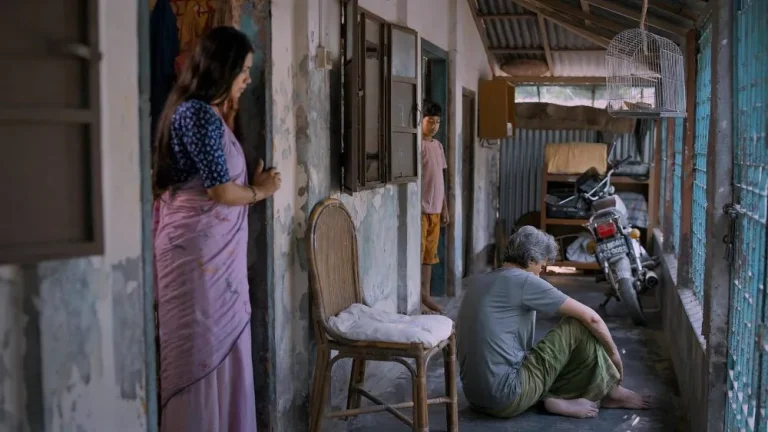“Sound of Falling” (Original title: “In die Sonne schauen,” 2025) is a film of great ambition, which makes it all the more shocking that it is only the second feature of writer/director Mascha Schilinski. Grafting such a plethora of historical locations with such specific aesthetic detail is a challenge in its own right that even a veteran filmmaker may have struggled with, but “Sound of Falling” is also a narratively dense, thematically complex work that took real foresight to render into something that was even slightly comprehensible.
There’s a lot to admire within what Schilinski pulled off, as the density of the film’s structure did not preclude it from finding wholesome, intimate moments. However, “Sound of Falling” is often derivative of itself, and has such a lack of momentum that it can often feel like a berating work of evocative trauma.
To describe the plot of “Sound of Falling” is itself a challenge, as the film’s narrative approach doesn’t entirely congeal until it’s already started hinting at its broader ideas. It begins as a mid-war look at Germany of the 1940s, in which the teenager Erika (Lea Drinda) watches her community prepare for the precipice of recruitment. Mothers purposefully hobble their sons to prevent them from being dispatched to join Hitler’s army, and Erika is slowly taught to understand the permanence of death.
However, Erika explores the now-fading luxury of her home without knowledge of Alma (Hanna Heckt), another young girl who went through similar experiences three decades prior. The world may have been in the midst of another frictious situation, but Alma’s interest in death was prompted by the sight of her grandmother’s corpse, which was preserved for a funerary event.
“Sound of Falling” takes an interesting approach to exploring post-war Germany, a subject not often examined as thoroughly as the Nazi era, by following the teenager Angelika (Lena Urzendowsky) during a relatively peaceful period in the 1980s. Even though the notion of being called to arms has faded, Angelika faces a different type of persecution as she attracts the leering eyes of the men in her community. As she grows of age, she discovers the brutal, sadistic ways that women are treated within her community, which sparks a mystery as to how the families of Alma and Erika played into this current situation.
These historical crises are bound together by a flash to reality, in which Lenka (Laeni Geiseler) is faced with similar concerns about being an object of desire. There’s an open question about where the transition between adolescence and womanhood begins, but also a visceral perspective on how fleeting life is, especially when framed with the context of an entire family history. Death is often a simple, unremarkable act, and “Sound of Falling” looks at how these instances of tragedy leave repercussions that last through multiple generations.
Also Read: 20 Best Historical Dramas of All Time
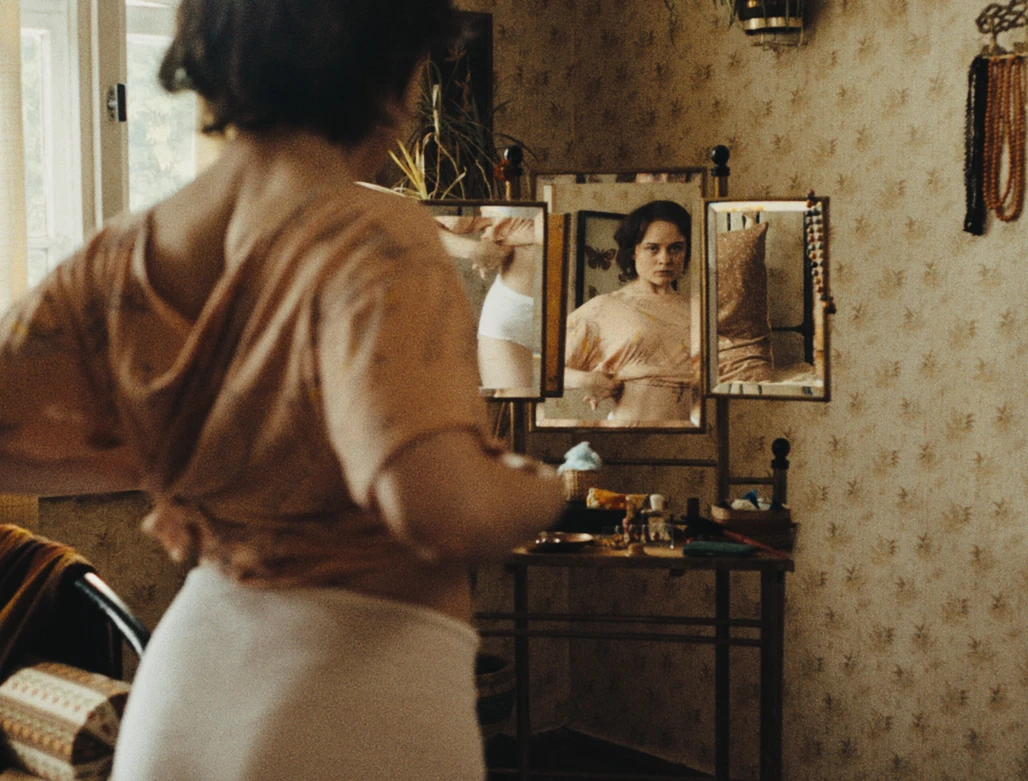
“Sound of Falling” takes extraordinary lengths to pinpoint its historical eras, and is clever in the limitations of its scope. While an informed audience member may be familiar with the political machinations within Europe during these respective decades, the young protagonists are more limited in the knowledge that they are exposed to.
However, this atmospheric, personal approach also leaves many of the segments feeling broadly similar. Even if the point was to show how trauma and tragedy are renewed among each generation of young women, it’s often a laborious watch that forces the audience to stomach uncomfortable material that puts perhaps too fine a point on itself.
The structural sporadicness also makes it hard to fully invest in any storyline, as the transitions in between moments of renewed suspense make each individual story feel less impactful on its own, as they seem to be utilized purely to make a larger point about recurring trends. Although all the performances are strong, “Sound of Falling” struggles to find supporting characters in each story who can hold an equal weight in the narrative.
Some segments are seemingly overwhelming in their sympathy, whereas others are more pointed in finding the obvious culprits. The result is a haphazard pace that often cuts off the success of one area of focus before it switches to another. While the segment involving Lenka in particular reaches a moving conclusion that perfectly embodies the ideas that “Sound of Falling” has been touching on throughout its nearly 150-minute running time, the end to Erika’s story is provocative purely for the sake of shock value.
The extent of time “Sound of Falling” is interested in is also peculiar, as tracking the evolution of four distinct characters within a film that weaves in between them (without a notable pattern that makes it more approachable) can leave some emotional arcs feeling stagnant or cut off. It’s an unusual choice for a film that is so elegant within its construction, as Schilinski has clearly put great thought into finding intimate moments that would be hard to describe in less uncertain terms.
That being said, the film’s interest in ethereal, nearly surrealist dreamscapes sticks out sorely, as any intentional moments of reality breaking feel like just another tangent within a film that moves with no haste to reach its conclusion.
It might seem odd to characterize a film like “Sound of Falling” as an “endurance test,” but that’s often what it feels like when seeing how the lessons of one decade are quickly forgotten by another. The film is perhaps a bit too effective in raising its cynical points that the instances intended to celebrate the tranquility of time fall flat, and feel like a strange way to cap off a film imbued with such righteous pain.
It’s perhaps the technical brilliance, remarkable breakout performances, and aesthetic virtues that make it so frustrating that “Sound of Falling” feels like it falls short of greatness, even if Schilinski clearly has a lot of potential going forward. Although there are too many remarkable qualities for it to ever be written off entirely, “Sound of Falling” is more of an interesting thought experiment than it is a successful generational epic.



![Jay and Silent Bob Strike Back [2001] – Lookback on the Throw-back](https://79468c92.delivery.rocketcdn.me/wp-content/uploads/2018/06/thumbnail_poster_color-Jay_V2_Approved_640x360_132950083735.jpg)
